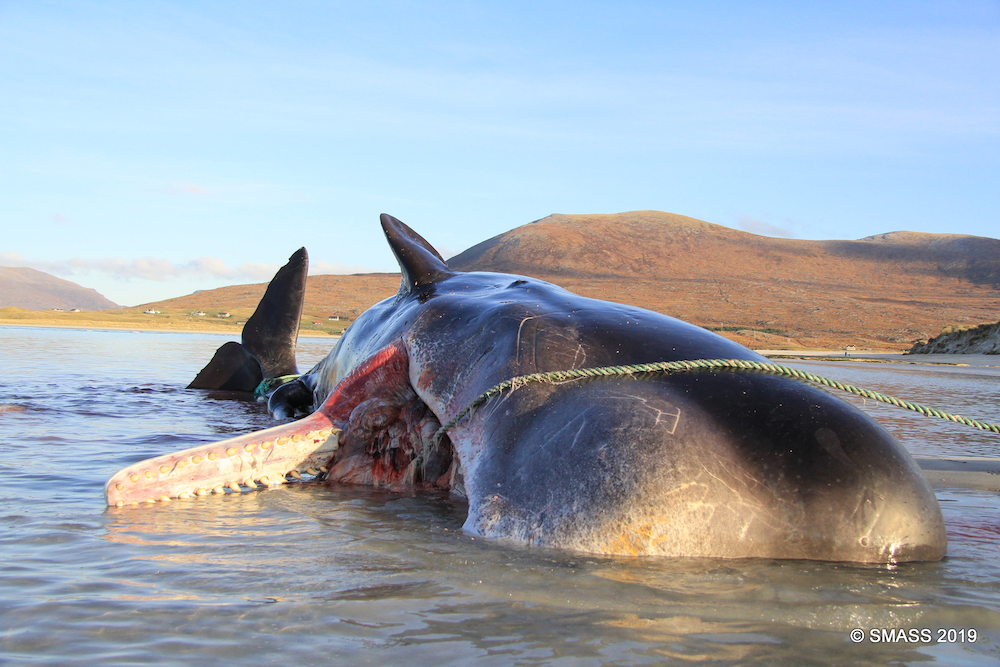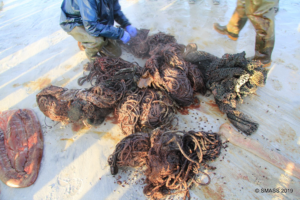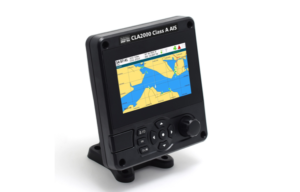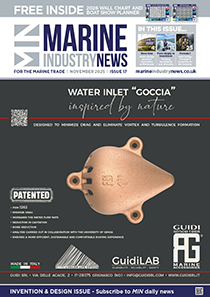Approximately 100kg of marine debris found in whale’s stomach

Approximately 100kg of marine debris – a whole range of plastic including sections of net, bundles of rope, plastic cups, bags, gloves, packing straps and tubing – has been found during a sperm whale necropsy on Harris, Outer Hebrides. The sub-adult male was thought to have live stranded and had been dead for 48 hours when it was opened. Animals this size are so well insulated that even though the temperature outside barely got above freezing, they don’t cool down and hence decompose incredibly quickly which meant “pretty much most of the guts blew out of the side when we stuck a knife in it” according to Scottish Marine Animal Strandings (SMASS) facebook page.
 The marine debris was in a huge ball in the stomach and some of it looked like it had been there for some time, SMASS reports. The animal wasn’t in particularly poor condition, and whilst it is certainly plausible that this amount of debris was a factor in its live stranding, no evidence was found that this had impacted or obstructed the intestines.
The marine debris was in a huge ball in the stomach and some of it looked like it had been there for some time, SMASS reports. The animal wasn’t in particularly poor condition, and whilst it is certainly plausible that this amount of debris was a factor in its live stranding, no evidence was found that this had impacted or obstructed the intestines.
“This amount of plastic in the stomach is nonetheless horrific, must have compromised digestion, and serves to demonstrate, yet again, the hazards that marine litter and lost or discarded fishing gear can cause to marine life. It is also perhaps a good example that this is a global issue caused by a whole host of human activities. This whale had debris in its stomach which seemed to have originated from both the land and fishing sectors, and could have been swallowed at any point between Norway and the Azores. We are looking in more detail to see if we can work out quite why this animal ended up with so much of it in its stomach,” says SMASS.
The necropsy was undertaken on site in Luskentyre with help from members of the coastguard and the Western Isles council disposal team who also helped bury the whale, and therefore return the beach to its pristine glory. Surrounded by fragile dune ecosystems, there was no option to move a 20-tonne animal elsewhere, so it needed to be buried on site.
Dan Parry, who lives nearby, told BBC Scotland: “It was desperately sad, especially when you saw the fishing nets and debris that came out of its stomach.
“We walk on these beaches nearly every day and I always take a bag to pick up litter, most of which is fishing-related.
“This stuff could have easily been netting or the like lost in a storm, we just don’t know, but it does show the scale of the problem we have with marine pollution.”
According to SMASS figures, reports of whale and dolphin strandings in Scotland are increasing. In 2009, there were 204 reports of incidents, compared to 930 in 2018.










